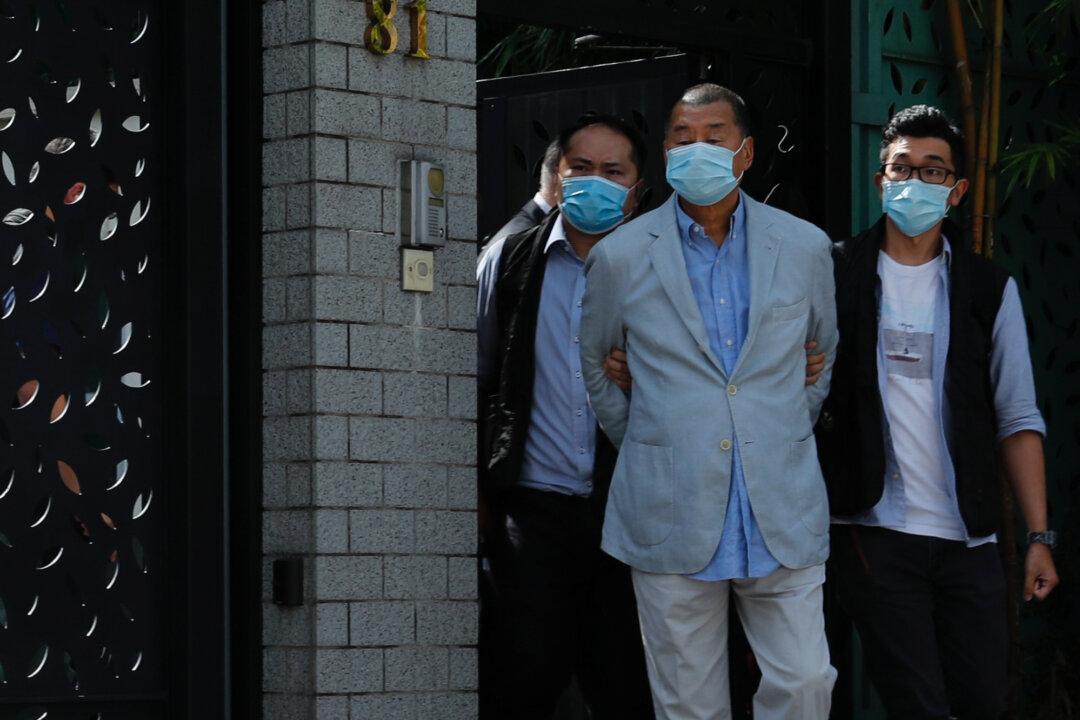Hong Kong police’s arrest of media tycoon Jimmy Lai under the city’s new national security law has drawn condemnation from officials and activists around the world, who say the move was an attack on press freedom and snuffed out the territory’s dwindling autonomy.
Lai, a strident critic of the Chinese communist regime, was arrested on Aug. 10, along with his two sons, on allegations of collusion with foreign forces. Later that day, more than 200 police officers raided the newsroom of Lai’s newspaper Apple Daily, the largest pro-democracy outlet in the city.





